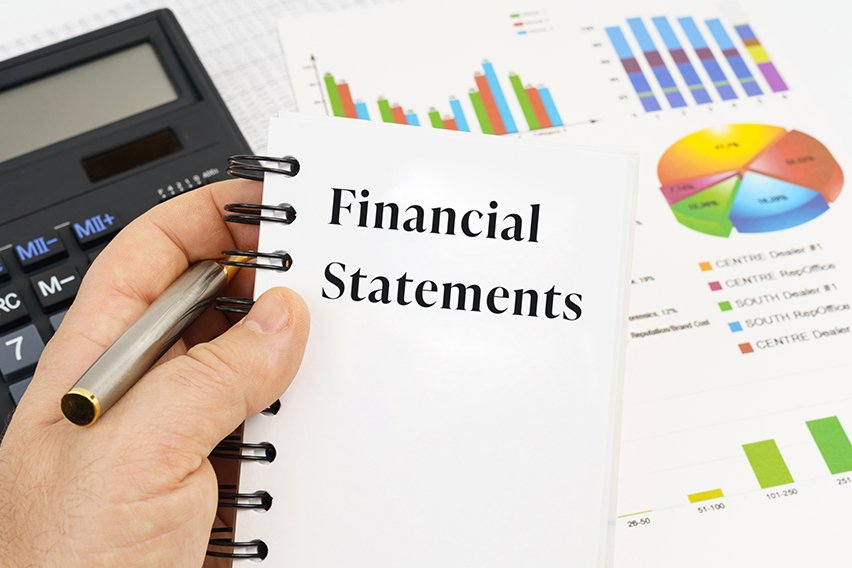When Should I Hire an Accountant

A business owner should look at hiring an accountant before the process of data collection and analysis becomes overwhelming. An experienced accountant will have skills in data management, analysis and regulatory compliance, and be able to generate the financial reports a company needs to properly plan for its future.
Here’s What We’ll Cover:
Do I Really Need an Accountant?
How Much Does It Cost to Hire an Accountant?
How Do I Find a Good Accountant?

Do I Really Need an Accountant?
In order to answer this question, assess your situation first: the type of business you’re in, its size and what stage of development it’s at. Ask yourself the following questions:
Do I Have a Lot of Expenses and Income to Manage?
If so, and the invoices and receipts are adding up, maybe for now you just need a bookkeeper. This could be a more cost-effective solution than hiring an accountant. A bookkeeper can recommend and implement a software accounting system for you, as well as:
- Create expense categories, recommend expense policies and coordinate approvals.
- Enter expenses and income transactions into the system.
- Handle banking activities including bank visits to deposit checks.
- Maintain records with backups as required.
- Assist with audits.
- Troubleshooting.
Do I Need a Single or Double Entry System of Accounting?
Single Entry System
A single entry system records every transaction as a single line in a physical or digital ledger. It does not require any formal training and is not costly. It is so simple it could run on an excel program if need be. You only need to record the following for each transaction:
- Date
- Description
- Whether the activity is an expense or is income (and Amount)
- Tax
- Payment Method
- Balance (this balance would be updated with every transaction)
If your business does not have a lot of transactions in a day, then perhaps a single-entry system is ideal, and you can update it yourself using Excel. Being able to immediately access your cash balance information, along with seeing how much income and expenses you have, are the benefits of using a single-entry system of accounting. For more insight on Single Entry Bookkeeping using Excel, check out our post on How to Do Bookkeeping in Excel.
Double Entry System
If your company is big enough that it requires financial statements, then that’s a sign you need a double entry system. For that, you should hire an accountant as a double entry system is complex and time consuming. The method will also need accounting software to be properly implemented.
A double entry requires every entry into the system to have an additional corresponding entry to a different account. Consider the word “double” in “double entry” standing for “debit” and “credit”. The two totals for each must balance, otherwise there is an error in the recording of the transaction.
A double entry system has its advantages. It is much more accurate than single entry, and it allows for the creation of the financial statements you will need.
Do I Have the Time to Do My Own Accounting?
This is a biggie. Why? Because often time spent on accounting can be better spent elsewhere by you, as a business owner. And usually the time required is underestimated.
You need to be thinking strategy for the company, and mapping out its one, five-year and ten-year plan. Getting bogged down in the financials is not where you want to be. Have an accountant generate those reports for you, who is experienced at doing so, and then you can review them together while getting some advice.
This will free up your time and keep you doing what you’re best at, so that your business will grow.
How Much Does It Cost to Hire an Accountant?
When budgeting for an accountant, you will need to determine the type of accountant you want to hire, this means choosing between an accountant or a CPA (Certified Public Accountant).
Cost of an Accountant
The 2017 median pay for an accountant, according to the Bureau of Labor Statistics, was $69,350. That does necessarily mean you’ll have to pay that much. You may not need an accountant full time, perhaps just one or two days a week. So you could cut down on costs by going part-time, or with an hourly rate.
Typically, an accountant will have a degree from a recognized institution, however there are no government requirements that an accountant do so. Since this is your small business (and your money), you’ll want someone who has at least a few years experience and is no longer at the junior level. This person should be able to consult strategically with you about the best way to manage the business’s finances, the legal implications of your decisions and of course, help you with the company’s tax returns. You’ll also want someone who can do the bookkeeping too.

Cost of a CPA (Certified Public Accountant)
The 2017 average salary of a Certified Public Accountant, according to the Journal of Accountancy, was $119,000.
That’s quite a difference in pay than an accountant, however a CPA will be much more qualified. Earning the certification requires a lot of hard work on the part of the applicant. An applicant must complete specific education and work requirements (which differ from state to state) and pass a complex four-part exam. After earning the designation, a CPA has to take continuing education courses every year, otherwise he will lose it.
If your business is very small, like a sole proprietorship, then chances are you don’t need a CPA. A Certified Public Accountant is allowed to perform certain duties that regular accountants are not permitted to do (by law), so you may need to consider one down the road when your business grows. A CPA can be particularly helpful if dealing with the IRS.
How Do I Find a Good Accountant?
The best place to source out a good accountant is through word of mouth. Yes, online search helps but keep in mind you’ll be seeing a lot of ads. Start your search with referrals from business owners you know, who are satisfied with the accountants they did hire. You’ll want to ask the right questions, and then set up an interview.
The questions you’ll ask about the candidate should include:
- Were tasks completed on time?
- Were the reports accurate?
- What problems were there and how did the accountant handle them?
- What was communication like? (between accountant and client)
- Did the accountant demonstrate initiative, if so – how?
- Any weaknesses you should be made aware of?
- Did the accountant provide any time or cost saving tips?
Referrals are also good because you can get an idea of the candidate’s salary expectation or hourly rate, in advance.
RELATED ARTICLES

 How To Choose an Accountant: 8 Things To Look For
How To Choose an Accountant: 8 Things To Look For What Is the Difference Between Bookkeeping and Accounting?
What Is the Difference Between Bookkeeping and Accounting? Keep Track of Expenses and Profits: A How-To Guide
Keep Track of Expenses and Profits: A How-To Guide How To Forecast Financial Statements: Balance Sheets, Income Statements
How To Forecast Financial Statements: Balance Sheets, Income Statements Why Are Financial Statements Important?
Why Are Financial Statements Important?